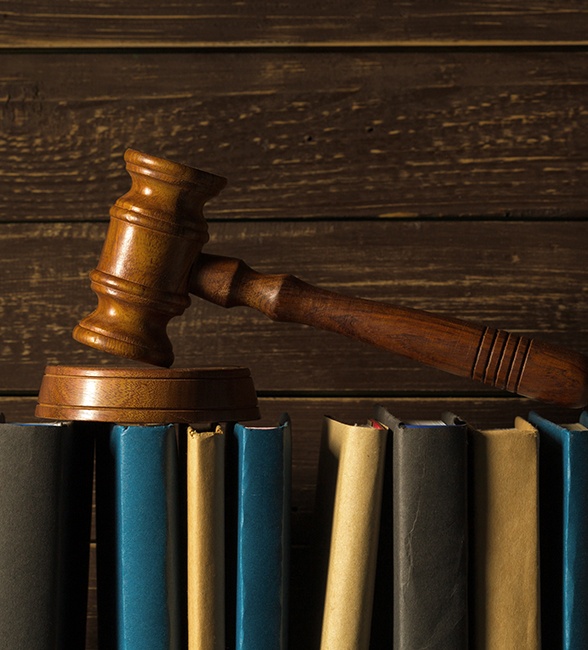The Impact of Artificial Intelligence on Trademark Law

The Impact of Artificial Intelligence on Trademark Law
Redefining Boundaries
Introduction
Artificial intelligence has ruled the roost in all technologies, inventions, and innovations for the past few years. There is no segment left untouched by AI. The growing technology can be detected in many spheres of law including Trademark. A trademark that distinguishes the product and services of one enterprise from that of another, safeguards the goods from unauthorized use and also protects the reputation of the original producer due to counterfeiting of the product and services. AI can be traced in the trademark registration, filling, and application which was previously done by the authentic and original producer or anyone on behalf of the producer. However, with the advent of AI, the need to redefine, redesign, and evaluate the traditional and obsolete laws of Trademark is also generated. AI has reshaped the structure of the trademark and eased the manual workload of the procedure related to the trademark.
But this is not the entire side of the story, there is one more side that is not so ever happening side. It has certain dangerous impacts, and challenges and has its own difficulties and issues. This writing is going to explore such problems and vital issues that pose challenges and sabotage the working of Trademark Laws.

AI and Trademark
AI has proved very useful in reducing the burden of workload and also provides relaxation in manual jobs regarding the registration, filling, and application of trademarks. The essence of AI can be seen in various ways:
- Trademark Search & Clearance
- Trademark Filing Assistance
- Similarity Analysis
- Trademark Monitoring
- Automated Trademark Classification
- Trademark Infringement Detection
- Trademark Valuation
- Improved Consumer Insights
- Legal Research & Case Analysis
Earlier all the above-mentioned work was done by human beings and has numerous challenges and difficulties faced by them such as:
- It is a very time-consuming Procedure
- It involves a high Risk of Human Error
- Complex Classification System
- Sometimes it provides inconsistent Results
- Limited Data Analysis
- Difficulty in Monitoring Infringements
- Highly Resource-Intensive
- Difficulty in Detecting Non-Traditional Trademarks
The introduction of AI in the Law sector, especially in trademark laws, proved very useful as time management and resource-saving technology which not only reduced the work burden but also extended the scope and boundaries of the trademark, redesigned the conservative ways of different procedures and provisions of the Act.

Challenges Imposed by AI
Every coin has two sides, similarly, AI also has 2 sides one of which is positive and useful and has influenced a lot of people, businesses, and enterprises but the other side is negative and dark which is latent from the world and has its implications and issues. It poses a lot of challenges such as:
- Accuracy of AI Predictions that are not 100% reliable and accurate.
- Legal Liability Issues
- The complexity of Non-Traditional Marks like sound, taste, or smell marks, as they require human understanding.
- Limited Contextual Understanding
- High Initial Costs
- Data Privacy Concerns
- Ethical Concerns in AI Decision-Making
- Bias in AI Models
- Infringement by AI-Generated Content
- Easily hacked
Even if the world is changing and moving toward novel technologies and adapting them in their daily life and work, still certain complexities will not allow this new technology to submerge human labour. Human understanding and clarification are always needed to complete the work efficiently, effectively, and properly no matter how advanced the technology is but it can’t replace human efficiency.

Way Forward
- Stimulate Export Because this scheme lowers input prices, it helps exporters to some extent which makes Indian goods saleable in the international markets.
- Promote Local Production The scheme makes it possible for the zero duty policy on export raw material, which in turn increases manufacturing in this raw material for exporting in the clothing, drugs, and engineering sectors.
- Assist In The Growth Of The Economy The increase in exports leads to the increase of foreign exchange reserves and improves the balance of trade which in turn strengthens the economy.
- Improve Export Procedures Because the scheme is aimed at the encouragement of exports, it helps in streamlining the duty exemption to exporters.
- Boost Competitiveness In other markets, especially where production costs are low, Indian exporters can enter a battle for trade as the costs of production will be low.
- Facilitating Foreign Exchange Earning The scheme is useful for creating foreign exchange reserves by facilitating increased volume of exports.
- Minimizing Reliance on Tax Refund Systems For the purpose of exports, the zero duty imports reduce the exporters need for the duty drawback and refund system, thus making the operations easier.
- Encouraging Participation of MSMEs This means SMEs have a level playing ground and they are able to compete because they have lower costs of input in the scheme.
By following certain guidelines and introducing some reforms in the technologies, one can overcome the challenges and issues imposed by it. The blend of human labor and advanced technologies is always a better combination to overcome such problems.

Judicial Pronouncements
- Thaler v. Comptroller-General of Patents, Designs, and Trade Marks UK 2021
Issue: Is it possible to identify an AI as an inventor? No, according to several patent cases, it does give rise to some fundamental principles on AI as a property owner and its impact on trademarks, logos, and slogans created by the AI.
Relevance: It also demonstrates how much mechanistic uncertainty is regarding AI-invented varieties of IP.
- Bookingcom B.V. v. The United States Patent and Trademark Office United States 2020
Issue: Can a word with a hard descriptor of a term with .com at the end be a significant brand?
Relevance: Particularly in such matters the AI systems for similarity analysis are frequently employed to ascertain the existence of generic terms and distinguishability thereof.
- Alibaba v. Da Bai Tu, China 2019
Issue: Alibaba deployed AI to monitor trademark infringement on its services as well, this case shows how AI is changing trademark enforcement.
Outcome: Focused on AI’s ability to control online counterfeiting and enhancement of trademark rights protection.
- Lush Ltd v. Amazon.co.uk Ltd 2014
Issue: Amazon was targeting advertisements for its competitor’s products as ‘Lush’ a trademark, was searched for by users on the Amazon site.
Outcome: Calling for trademark infringement, the courts sided with Amazon, arguing that the AI education techniques were leading to trademark violation.
Conclusion
An example of this acceleration in technological advancement is artificial intelligence which has changed the entirety of trademarking processes and practices. Apart from the benefits, that AI technology brings along with it, such as search, classification, infringement detection, and enforcement, it also raises numerous challenges such as ethical concerns, opacity, bias and model generalization issues, and jurisdictional fragmentation. To harness the promise of AI and at the same time reduce its risks, a thoughtful plan is required. An example of this may be promoting AI developers, practicing lawyers and policymakers to come together and work on World-Wide standards, moral requirements in AI applications, and active human supervision. As the legal structures catch up with the dynamic capabilities of AI, it will be compulsory to protect trademarks as an essential provision of intellectual property in this fast-moving digital era.
LEGALLANDS assist in services related to Intellectual Property Rights, Contract Conveyancing, Corporate Services, Custom Litigation, NCLT Matters, GST Litigation, Joint Ventures, Merger & Acquisitions, Business and Management Services. We also offer services related to Foreign Trade Policies, Immigration Services, Regulatory Compliances, Legal Compliances, Logistics Support, International Dispute Resolution, Trade Regulations, and many more. We also assist in Due Diligence, Risk Assessment etc. Feel free to connect with us at connect@legallands.com. For further information visit our website on www.legallands.com.

